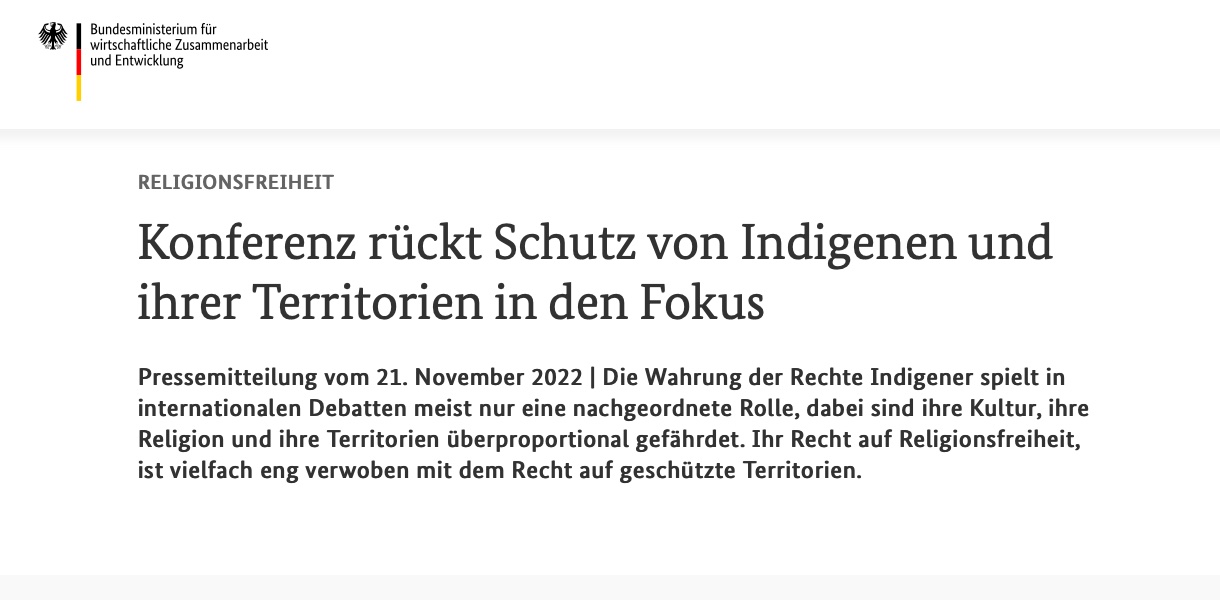On November 21, the German Ministry of Economic Cooperation and Development hosted a conference on indigenous peoples and their religious freedom. The meeting was hosted by Frank Schwabe, Member of the German Bundestag and Federal Government Commissioner for Freedom of Religion or Belief. Among the speakers were Nazila Ghanea, UN Special Rapporteur on Freedom of Religion or Belief (FoRB), and Francisco Cali Tzay, Special Rapporteur on the rights of indigenous peoples. Arie de Pater, Brussels representative of the European Evangelical Alliance attended the meeting on behalf of the International Institute on Religious Freedom (IIRF).
In his introductory remarks, Mr Schwabe announced that his next annual report would focus on the religious freedom of indigenous peoples and the protection of biodiversity. This illustrates that his mandate goes beyond protecting persecuted adherents of (traditional) religions or beliefs. The World Evangelical Alliance, IIRF, and The Observatory of Religious Freedom in Latin America (OLIRE) will contribute to the report.
Dr Ghanea, UN Special Rapporteur on Freedom of Religion or Belief (FoRB), presented the latest report of her predecessor, Dr Ahmed Shaheed. For indigenous peoples, spirituality is at the heart of their identity. They have sacred places where they perform their rituals and festivals. Women often play an important role in these practices.
The UN Special Rapporteur on the rights of indigenous peoples, José Francisco Calí Tzay, emphasised that FoRB, climate change and indigenous rights are closely intertwined. He advocated for adding spirituality to the right to FoRB. Indigenous peoples have often suffered much at the hands of colonial powers. It is important to realise that, when talking about the preservation of biodiversity, indigenous peoples living in the area are not just stakeholders but rights holders. They do not need protection in the first place, they need respect.
Dr Ghanea stressed that the spirituality of indigenous peoples is fully covered by FoRB, and that there is no need to come up with new legal provisions but rather implement what we already have.
As IIRF, we were especially interested in the tension between the more individual right to FoRB and the collective rights of the indigenous peoples. For example, when people leave the faith of their ancestors, exercising their right to change their religion or belief, they are sometimes expelled from the village and the community. As the focus of the meeting was mainly on the nexus of religion or spirituality and the preservation of nature, the speakers and the audience did not get into a more in-depth discussion on the relation and/or the tension between FoRB and the rights of indigenous peoples and their spirituality. From an academic point of view, this would have made the conference much more interesting, especially with two prominent UN figures present.
